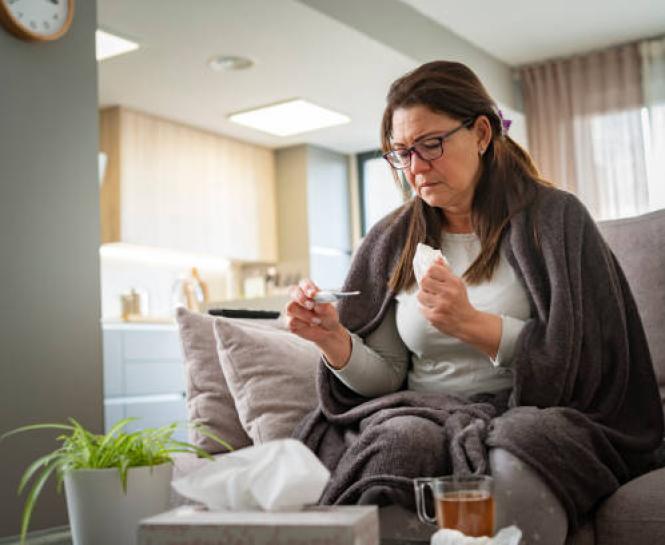Being a young adult is hard, and sometimes fatigue and sore throat make it worse. Even getting out of bed may become a struggle.
If that sounds familiar, you may have had mononucleosis. Mononucleosis, also known as “the kissing disease” or mono, is a contagious viral infection. It causes fatigue and a sore throat.
“Mononucleosis occurs most commonly in teenagers and young adults,” explained Meenu Heda-Maheshwari, MD, Catholic Health Family Medicine Physician. “However, it can affect children as well.”
How do you get mononucleosis?
Viruses, especially the Epstein-Barr virus (EBV), are the most common cause of mononucleosis. EBV is a member of the herpes virus family.
Dr. Heda-Maheshwari explained that most people are exposed to it at some point, and the virus stays in the body for the rest of their lives. However, it is usually not serious.
The viruses that cause mono spread mainly through saliva, blood and semen. Viruses can also spread through blood transfusions and organ transplantations. You can also contract mono by sharing objects such as cups and toothbrushes.
Certain viral infections can cause mononucleosis, including:
- Adenovirus. An infection that commonly affects the respiratory system.
- Hepatitis A, B or C. Inflammation of the liver caused by a range of infectious viruses.
- Human immunodeficiency virus (HIV). A virus that attacks the body’s immune system.
- Rubella. A viral infection that causes a mild rash and fever.
- Toxoplasmosis. An infection caused by a single-celled parasite called Toxoplasma gondii.
Mononucleosis is highly contagious and spreads from person to person.
What are the symptoms of mononucleosis?
The symptoms of mono vary and can range from mild to severe. They usually start gradually and may not appear until four to six weeks after coming into contact with the virus.
Common symptoms of mononucleosis include:
- Extreme tiredness (fatigue)
- Fever
- Headaches
- Loss of appetite
- Muscle aches or weakness
- Rash
- Sore throat
- Swollen lymph nodes
- Swollen spleen or liver
How is mononucleosis diagnosed?
A mononucleosis diagnosis is based on symptoms. Your doctor will check for swollen lymph nodes in the neck and look for signs of an enlarged spleen or liver, such as pain or fullness in the upper left belly. They may also do a blood test to look for a high number of white blood cells, which can indicate an infection.
How is mononucleosis treated?
“Antiviral medications that kill other viruses do not work against mononucleosis,” said Dr. Heda-Maheshwari. “The body’s immune response to EBV causes mono, not the virus itself.”
In most cases, mono goes away on its own after a few weeks. Self-care for mono includes:
- Hydration
- Pain relievers to ease headaches and muscle aches
- Rest
- Saltwater gargles to soothe a sore throat
Avoid contact sports that can put extra pressure on an enlarged spleen to prevent injury.
Antibiotics do not work on viral infections. So, antibiotics, like ampicillin or amoxicillin, are ineffective treatments for mononucleosis.
Does mononucleosis cause long-term complications?
The symptoms of mononucleosis usually start to improve within four weeks. But feelings of fatigue can last for months.
Some complications from mononucleosis can be much more serious. Mono can cause spleen enlargement. In extreme cases, the spleen can rupture. A rupture causes a sharp, sudden pain on the left side of your upper abdomen. Call your doctor immediately and seek medical attention if you have pain in this area.
Can you get mononucleosis more than once?
“Most people only get mononucleosis once,” said Dr. Heda-Maheshwari. “However, in rare cases, the infection can come back.”
She noted that people with weakened immune systems are more likely to get mono more than once.
An increased risk occurs in people who:
- Are pregnant
- Have had an organ transplant
- Have HIV/AIDS
Can mononucleosis be prevented?
Practicing good hygiene is the best way to prevent the spread of viruses that cause mono. Do not kiss or share personal objects with someone sick or with any signs of a viral illness.
There is no vaccine or cure for mononucleosis.






